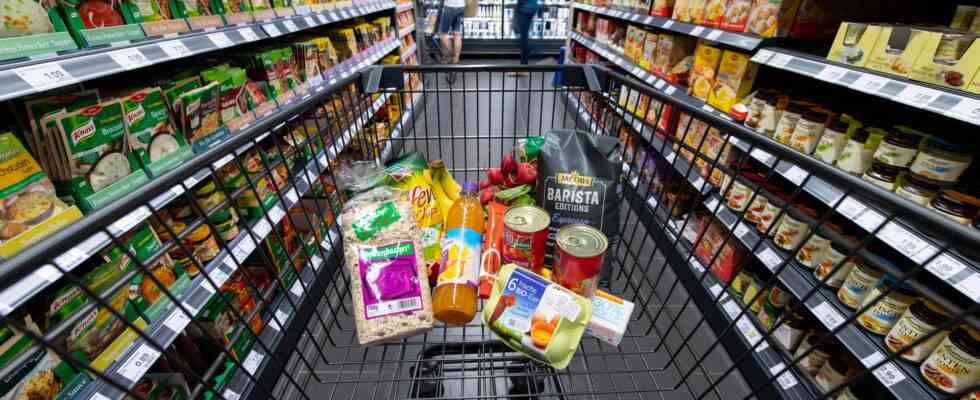Status: 13.12.2022 10:28 a.m
Although the inflation rate has fallen slightly recently, there is no reason for consumers to sound the all-clear: Rising food and energy prices remain a heavy burden for consumers.
Inflation slowed somewhat in November. The Federal Statistical Office announced today that consumer prices rose by an average of 10.0 percent compared to the same month last year, thereby confirming its earlier estimate. The positive thing about the fresh data is that it is the first decline since July. Prices even fell from October to November, by 0.5 percent. In addition, the inflation rate in October was 10.4 percent, its highest level since 1951.
The situation remains extremely tense for consumers, and the statisticians are not giving the all-clear: “We are increasingly seeing price increases for many other goods besides energy,” said the President of the Federal Office, Georg Thiel. “The continuing rise in food prices is particularly noticeable for private households.”
New jump in food prices
Consumers had to spend 21.1 percent more on food than in November of the previous year. According to Destatis, food prices have increased steadily since the beginning of the year. In October 2022, for example, the plus was still 20.3 percent.
Edible fats and oils became significantly more expensive with an increase of 41.5 percent. Dairy products and eggs rose by 34 percent, consumers had to pay 21.1 more for bread and cereal products, and for vegetables the plus was 20.1 percent.
The statisticians point to the great importance of food prices for inflation. Without energy and food, the rate of inflation – the so-called core inflation – would have been only 5.0 percent in November. The inflation rate excluding energy would be plus 6.6 percent.
Natural gas prices have doubled compared to the previous year
Against the background of the Russian war against Ukraine, the highest price increase can still be observed in the energy sector. The cost of energy increased by 38.7 percent compared to the previous year. In October 2022, the increase was still 43.0 percent.
Household energy rose particularly sharply by 53.2 percent: The price of natural gas more than doubled at plus 112.2 percent, and the price increase for district heating was 36.6 percent. Heating with other fuels also became more expensive: the price of firewood, wood pellets or other solid fuels almost doubled, while light heating oil cost 55.0 percent more. Electricity increased in price by 27.1 percent and fuel by 14.6 percent.
Energy slightly cheaper than in October
Compared to October 2022, i.e. to the previous month, the consumer price index fell by 0.5 percent in November 2022. According to the statisticians, a major reason for the decline was the seasonal drop in prices for package tours by 25.3 percent. Total energy prices also fell slightly by 1.2 percent in November 2022 compared to the previous month.
There were price declines especially for mineral oil products with minus 6.1 percent. The minus for heating oil was 13.6 percent, for motor fuels 3.5 percent. Natural gas prices, on the other hand, rose again, by 2.9 percent. Price increases were also observed for district heating (plus 2.0 percent) and electricity (plus 1.4 percent).
In addition, private households had to pay more for food again, with prices rising by 1.2 percent compared to October.
Historically high real wage loss
According to a study, persistently high inflation in Germany has triggered a historic drop in real wages this year. In 2022, negotiated wages rose by an average of 2.7 percent compared to the previous year. This is based on data from the tariff archive of the Economic and Social Science Institute (WSI) of the Hans Böckler Foundation.
However, given an expected inflation rate of 7.8 percent for the year as a whole, this results in an average fall in real wages of 4.7 percent, according to the WSI. This is a “real wage loss that is unique in the history of the Federal Republic of Germany,” said the head of the WSI collective bargaining archive, Thorsten Schulten.

